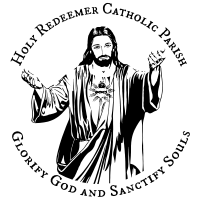The Precepts of the Catholic Faith, Part 2
The Second of a Seven Part Series
You can read the first part here.
July 9, 2023
Jesus Christ: Yesterday, Today, and Forever ~
This week we continue our series on the Precepts of the Catholic Church: “pre” meaning “before”, and “cept” meaning “life” – before there can be full life in God, these seven laws must be observed. Failure to live them out would constitute a mortal sin: when one has knowledge of them, and acts without undue coercion to disregard them. “The obligatory character of these positive laws decreed by pastoral authorities is meant to guarantee to the faithful the very necessary minimum in the spirit of prayer and moral effort, in the growth in love of God and neighbor”. Catechism #2041. This week we continue working our way through them by exploring the second precept. They are listed here again as a reminder.
The Precepts of the Catholic Church
To attend Mass on Sundays and Holy Days of Obligation and rest from servile works.
To observe the days of abstinence and fasting.
To confess our sins to a priest at least once a year. Traditionally, during the seasons of Lent or Easter.
To receive Our Lord Jesus Christ in the Holy Eucharist at least once a year during the EasterSeason.
To contribute to the support of the Church [Stewardship of time, talent, and treasure (tythe)].
To obey the laws of the Church concerning Matrimony [Catholics who marry are obligated to wed in the Catholic Church].
To participate in the Church's mission of Evangelization of Souls.
For the Catholic Church in the U.S. at this time, abstinence means refraining from all different kinds of meats, minus fish; while fasting means reducing our portion of food to one normal meal and two smaller than normal (snacks). Historically it has meant much more than that, i.e., fasting on plain bread with water.
Why does the Church ask us to observe days (and times) of abstinence and fasting? Penance, spiritual focus, imitation of Christ, and self-mastery. We all owe God penance for our sins, and out of charity, penance for the sins of others; the criminal owes the one he has committed a crime against some form of restitution for the offense. Abstinence and fasting is a way for us to concentrate our focus upon Our Lord, especially in preparation for receiving Holy Communion. Fasting helps us imitate Christ to become more like him, and to prepare the way for important events. Finally, because we have a need to overcome all our passions, and abstinence and fasting when honestly applied, aid us greatly in achieving self-mastery.
In the United States at this time, the U.S. Conference of Catholic Bishops has declared that the age of fasting is from the completion of the 18th year to the beginning of the 60th. The USCCB also allows the substitution of some other form of penance for abstinence on all of the Fridays of the year, except for those Fridays in Lent. Thus, the rules for fasting and abstinence in the U.S. are:
Every person 14 years of age or older must abstain from meat (and items made from meat) on Ash Wednesday, Good Friday, and all the Fridays of Lent.
Every person between the age of 18 and 59 must fast on Ash Wednesday and Good Friday.
Every person 14 years of age or older must abstain from meat on all other Fridays of the year, unless he or she substitutes some other form of penance for abstinence.
Every person is to fast from all food at least one hour before reception Holy Communion is to be received.
Exceptions to these rules on abstinence and fasting would be illness, pregnancy, nursing, a medical condition (diabetes, etc.,), and when it would seriously interfere with our responsibilities. When any of these are the case, in the spirit of the precept, it is expected that we give up something else (smart phone, internet, TV, music, shopping, etc.); or do something challenging in a spirit of charity, e.g., call or visit with someone who is difficult to talk to, attend a weekday Mass, spiritual reading, clean and organize the house/garage, help someone else, volunteer, etc.
Next week: precept #3.
May Our Lord and His Blessed Mother Keep You,
Fr. Thomas Nathe


